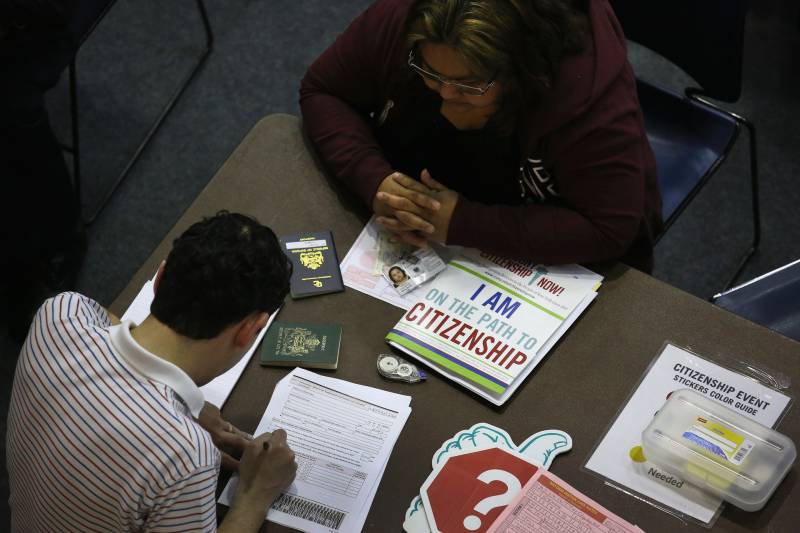California elected officials and immigration advocates are denouncing a Trump administration proposal that would hike the application fees to become a U.S. citizen by 83%, while also eliminating many fee waivers that low-income immigrants rely on.
Under the proposed rule by U.S. Citizenship and Immigration Services, the total cost of renewing Deferred Action for Childhood Arrivals would increase from $495 to $765, while naturalization application fees would rise from $640 to $1,170.
During the agency's last price hike in 2016, under the Obama administration, the naturalization fee increased by $45.
“Citizenship and the ability to obtain the immigration status for which you are eligible should not depend on the size of your bank account,” Los Angeles Mayor Eric Garcetti and other mayors wrote in a Dec. 18 letter to the agency urging the agency to withdraw the proposal.
Under the current proposal, USCIS would no longer offer fee waivers for people applying for naturalization, work employment authorization, permanent residency and other benefits. The agency would also get rid of the discounted rate for people petitioning to become U.S. citizens.
In an unprecedented move, USCIS would also charge some asylum-seekers $50 to request the protections, and $490 to apply for a first-time work permit while their cases are pending. The only three other countries that charge asylum-seekers a fee to consider their applications are Iran, Fiji and Australia.
